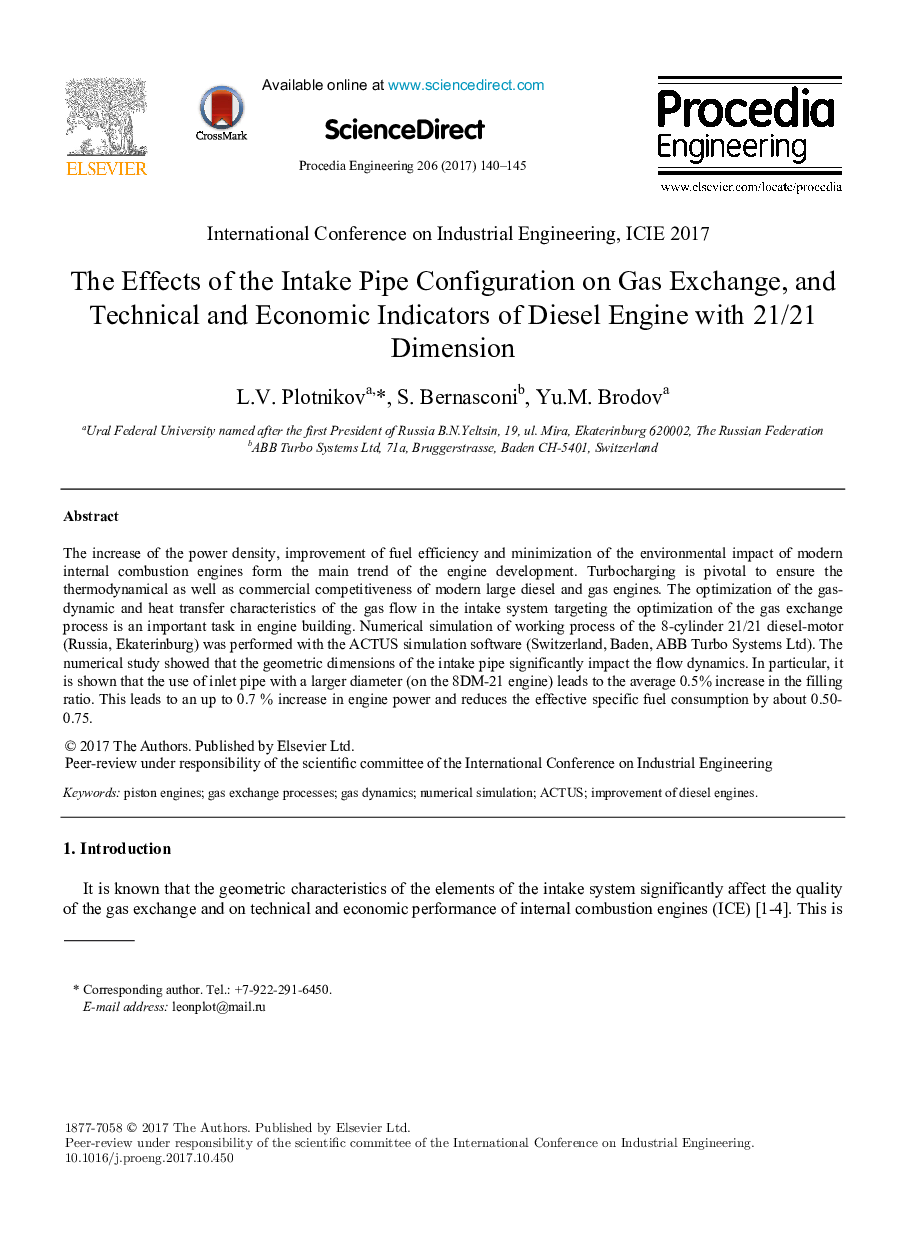| Article ID | Journal | Published Year | Pages | File Type |
|---|---|---|---|---|
| 7227366 | Procedia Engineering | 2017 | 6 Pages |
Abstract
The increase of the power density, improvement of fuel efficiency and minimization of the environmental impact of modern internal combustion engines form the main trend of the engine development. Turbocharging is pivotal to ensure the thermodynamical as well as commercial competitiveness of modern large diesel and gas engines. The optimization of the gas-dynamic and heat transfer characteristics of the gas flow in the intake system targeting the optimization of the gas exchange process is an important task in engine building. Numerical simulation of working process of the 8-cylinder 21/21 diesel-motor (Russia, Ekaterinburg) was performed with the ACTUS simulation software (Switzerland, Baden, ABB Turbo Systems Ltd). The numerical study showed that the geometric dimensions of the intake pipe significantly impact the flow dynamics. In particular, it is shown that the use of inlet pipe with a larger diameter (on the 8DM-21 engine) leads to the average 0.5% increase in the filling ratio. This leads to an up to 0.7 % increase in engine power and reduces the effective specific fuel consumption by about 0.50-0.75.
Keywords
Related Topics
Physical Sciences and Engineering
Engineering
Engineering (General)
Authors
L.V. Plotnikov, S. Bernasconi, Yu.M. Brodov,
